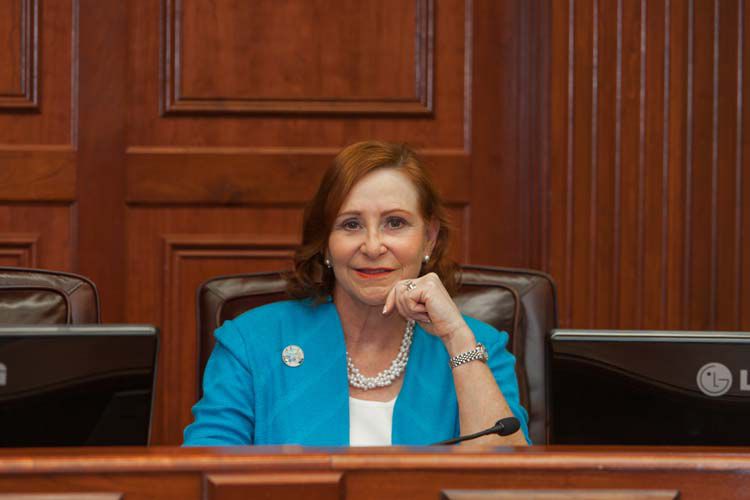
NEWS ANALYSIS – At her final meeting after serving six years on the Vero Beach City Council, ushered in as part of the 2010 push to get Vero out of the electric business, Councilwoman Pilar Turner sharply addressed those who hope to make the Vero electric controversy go away without solving the problem.
“Clearly my greatest regret in serving on the council has been the failure of the city to respond to the demand to sell Vero electric,” said Turner, who served as mayor and vice mayor during her tenure.
Her six years spanned the initial $100 million offer by Florida Power & Light to purchase the electric utility, to the contract for sale, to the disintegration of the deal due to pushback from the Florida Municipal Power Agency (FMPA).
“Once again, this (Vero electric) is a failed business model. We’re surrounded by the lowest-cost producer (in the state). It’s going to continue to create acrimony in this community,” she said. “I don’t believe Indian River Shores or the county are going to quit fighting when we’re seeing such an economic disparity in the rates.”
Tuner spared no scolding of the three men to her right – Mayor Jay Kramer, Vice Mayor Randy Old, and Council member Dick Winger – for their lack of backbone and their failure to form a united front against the FMPA.
Kramer was elected with Turner as part of Operation Clean Sweep, a campaign fueled by anger over soaring electric rates and the then City Council’s recalcitrant stance against even considering a sale of the utility.
Once in office, Kramer often worked behind the scenes against sale efforts. Kramer has said he’s always been for lower rates, and would close the sale today if there was a way to accomplish that, but his actions have not matched his words. Winger has straddled all possible sides of the electric issue to serve his political needs. Old did not play a useful role on the electric sale.
“The majority of this council has been unwilling to continue to fight to look for ways to get this sale completed. They’ve accepted, ‘Oh well, there are contracts.’ Contracts are renegotiated every day,” she said. “We need action, not just lip service.”
In the past year, Vero lost ground in its battle to make the FMPA accountable. Vice Mayor Old stepped down as Vero’s representative on the FMPA Board of Directors, saying that it was all too complicated for him and some expert like City Manager Jim O’Connor should represent the city instead.
“Return to the policy of having an elected official on FMPA, as fundamental as that,” Turner said. “Having served for three years and pushing them to give us transparency and clarity, this council voted to continue to support FMPA and their wishes.”
If the FMPA cannot be changed from within by the 30-plus member cities being punished by high rates, possibly the organization’s stranglehold can be loosened from the outside, by the Florida Legislature, the body that created the FMPA.
Attempts at passing meaningful legislation have met with the full force of the FMPA’s power-broker lobbyists, including former House Speaker Dean Cannon, who have wheeled their way into legislators’ offices and, with the help of the FMPA’s political wing, the Florida Municipal Electric Association’s MunicPAC, doled out campaign cash to influence leaders.
Despite those challenges, Turner said, “we need to continue to support legislative change. We need to look at engaging other FMPA members who would also benefit from lower rates.”
Turner said it has been “an honor and a privilege” to serve on the Vero Beach City Council, and she thanked the many committee members who have volunteered their time, especially those who have toiled away at utilities issues and fiscal reforms.
“Although I’m leaving public office, I’m not leaving public service,” Turner said. “Whenever anybody is ready to go up against FMPA and you need some support and I’ll be there.”



